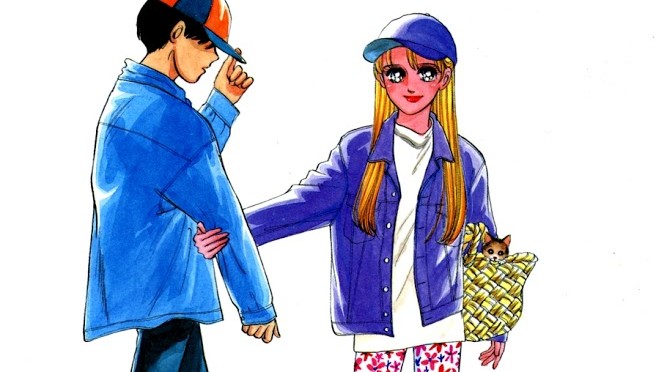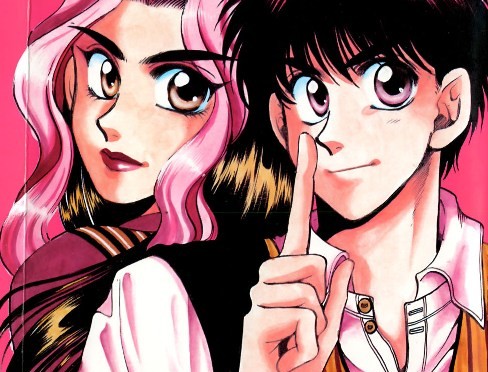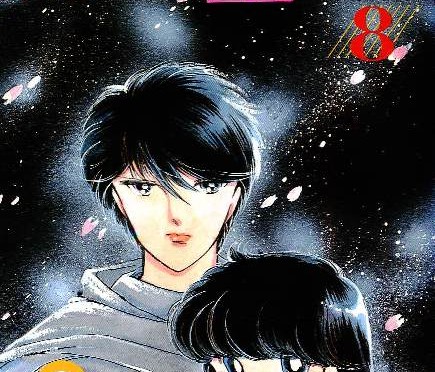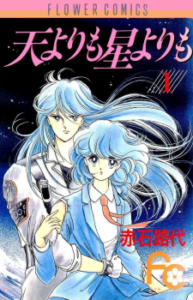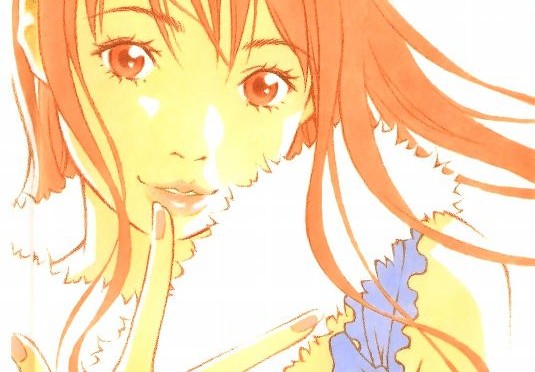The official English title of Futari no Kimochi (ふたりの気持ち) is “Feeling of Lovers.” It’s an 8-volume romance manga by Takami Mako, who appears to specialize in relationships between younger men and older women.
Kan (18) is in love with his brother’s ex-wife Fuyumi (23). In order to be together they’ll have to overcome their age difference and the inevitable opposition from their families.
Like most romantic series, the conclusion was a given from the start. Of course they’re going to end up together, it’s just a matter of how. What I wanted to see was the romance would develop and how the author would handle this unusual premise. I didn’t bank on the plot crawling along at a snail’s pace or the characters being childish, petty and completely unlikeable. Kan gets a pass for being 18, but Fuyumi is even more spoiled, naive and empty-headed. They make a good (idiotic) couple, but not one worth reading about.
Nothing much happens in volume 1. Fuyumi and Kan reconnect 3 years after the former’s divorce. They start dating pretty much right away (Kan first kisses her in chapter 1!) and then they spend the rest of the book having silly misunderstandings and petty little fights. “OMG he’s talking to another girl/she’s talking to another guy, s/he doesn’t like me after all!” Clear up one problem and another one arises, just as childish and petty as the last. If that’s what I wanted I’d just read a regular shoujo manga.
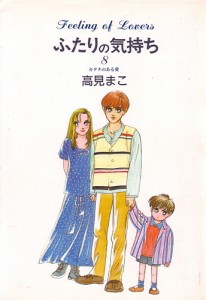
I skipped the rest of the books and read the blurb for volume 8 to find out how it ended. Predictably enough Kan’s parents have a fit when they find out the two are dating, so Kan and Fuyumi run off and shack up together and eventually have a baby. In the end the two families kind of make up and the two lovers and their baby attend Kan’s brother’s second wedding. So happy I saved myself several hours worth of reading teenage-level excrement in manga form.
What annoys me the most is that the romance could have been very easily derailed if Kan’s parents had just accepted the relationship in the first place. It’s pretty clear the two of them were getting off on the secrecy and sneaking around, so adding more drama and creating an “Us against the World” situation was a surefire way to make sure they ended up together. Especially since her mother-in-law was the main reason why Fuyumi divorced Kan’s brother in the first place. A pointed “It’s so nice to have you back in the family!” would have gone a long way towards cooling her ardor.
…You know a romance manga has gone all wrong when you’re rooting for the evil mother-in-law…
